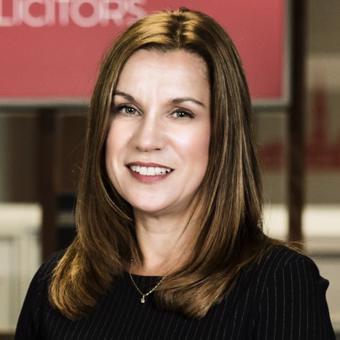Charlie spent 4 years in private practice, at 2 years’ PQE he moved in-house to Croda Industrial PLC. After 8 years he joined Arco as their General Counsel and Company Secretary and in 2020 he moved to GlobaData Plc.
Amongst other great pieces of advice from Charlie is this: “It is very rare that an issue is "illegal" or "legal"”. “Pragmatism and authenticity” are key traits for in-house lawyers.
In this series, BCL Legal Co-Founder and In-house Managing Director, Mark Levine, finds out a bit more about how lawyers who work in-house have got to where they are, what they do, what they feel are important character traits to have... and what lawyers considering a move in-house should think about!
What / Who made you consider law as a career?
I had a few uncles and aunts who were lawyers and they allowed me to tag along with them for some work experience as a teenager. Neither of my parents had gone to university so this was invaluable as I had had little exposure to the professional world. I was always interested in solving problems and helping people achieve their goals. I studied an Arts degree at university which did not lead to a specific career that I wanted to follow and as such looked at the professions.
Law seemed the natural choice and ultimately in-house the ideal fit for me.
What do you enjoy most about working as an in-house lawyer?
You are never quite sure what the next issue will be or what you will be faced with at the start of the day. By its nature, people only really come and see you if they cannot solve an issue themselves. As such making sure that issues do not arise helps.
However, working collaboratively with people really is what I enjoy most about my work and this is where the in-house lawyer differs from the private practice lawyer.
Colleagues can be wary of "the Lawyer" but I like to think this disappears quickly - I have enjoyed breaking that barrier down when working for the companies that I have. When sole counsel or in a small team it is important to be able to communicate at all levels within a business from the shop/factory floor to the chair of the Board. The term trusted adviser is overused, but when people in your company pick up the phone to you for your advice or opinion (often not legal), you know you are halfway to getting the job done. Supporting teams in getting the best outcomes gives me immense pleasure as well as developing others within my own team to be business focussed and pragmatic advisers.
I like to get my sleeves rolled up and stuck in - I have tended to be a sole counsel and build small teams who are focussed on supporting the growth strategy of the business and this leads to a great variety of work.
What attracted you to work for your current company?
I have worked predominantly in industrial businesses and the opportunity to work in a tech company was a huge draw. All companies are now digital in one way or another but seeing a relatively young, fast growing international company first hand in the tech space was a great opportunity.
What are the main deliverables of your role?
Supporting growth with the right amount of governance to ensure the business is sustainable and well managed without being hindered by red tape.
For me good governance is about enabling teams rather than blocking them. This is cultural and can be difficult to balance but when done correctly creates the best outcomes.
What do you feel are the most important character traits of an in-house lawyer?
Pragmatism and authenticity. It is very rare that an issue is "illegal" or "legal". As such it is about finding the right paths for the best outcomes and this requires both. You need to be able to challenge as well as support and ensure people understand that in challenge you have their best outcomes at heart. You wear a number of hats as an in-house lawyer; you are primarily there to protect the business but you also serve it and its teams. Colleagues must be able to come to you with problems but you also have responsibility for addressing issues that arise, particularly if these are ethical or reputational. That mix of poacher and game-keeper is a very difficult balance to maintain but vital in a successful in-house lawyer.
When / If you look for new team members - what is most important to you and why? Ability or Character??
As with almost every role it is important to have a blend of both. People expect lawyers to know their subject (and quite often everything else as well!) so ability is important, but in house particularly, character or attitude is just as important. Most successful companies will have demanding stakeholders who want quick and sensible solutions. They do not want more problems.
The ability to deal with the broad spectrum of stakeholders is a key skill. Most roles are varied and the ability to think on your feet and advise with credibility is key to gaining respect from the teams you work with.
What would you say to any lawyer considering a move in-house?
Think about what you most enjoy from your current role. If you like variety, a broad stakeholder base and challenge then you may find in house well suited to you. If you have worked in a highly specialised private practice environment, you will likely be expected to work on a much broader portfolio and you need to consider if this is for you... Possibly try secondment or speak with in-house clients you deal with.
In-house roles vary massively as well and even the same job title in different companies will be completely different.
Sole counsel roles could not be more different to huge legal teams working for multinationals - the larger the team, the more specialised the roles are likely to be and the more like private practice they are likely to be. In a sole counsel role you can be dealing with anything and everything - that does not suit everyone, but I enjoy the variety.
- Connect with Mark Levine on LinkedIn
- Connect with Charlie Strickland on LinkedIn











